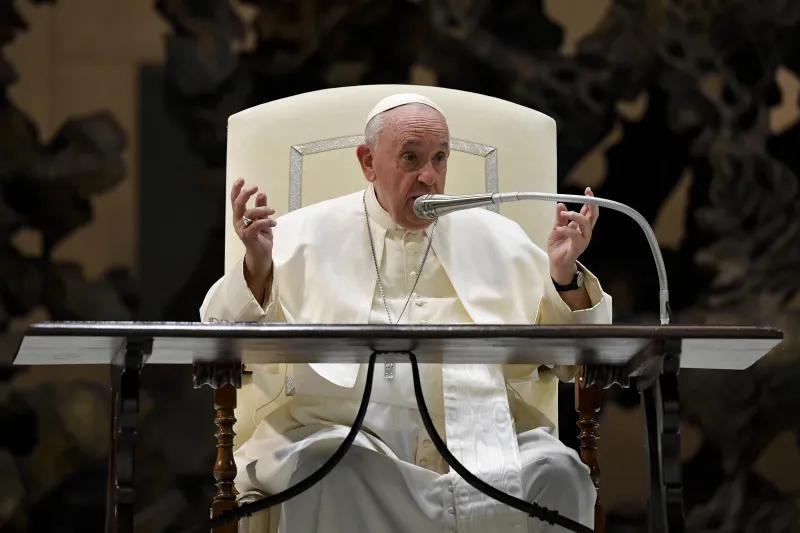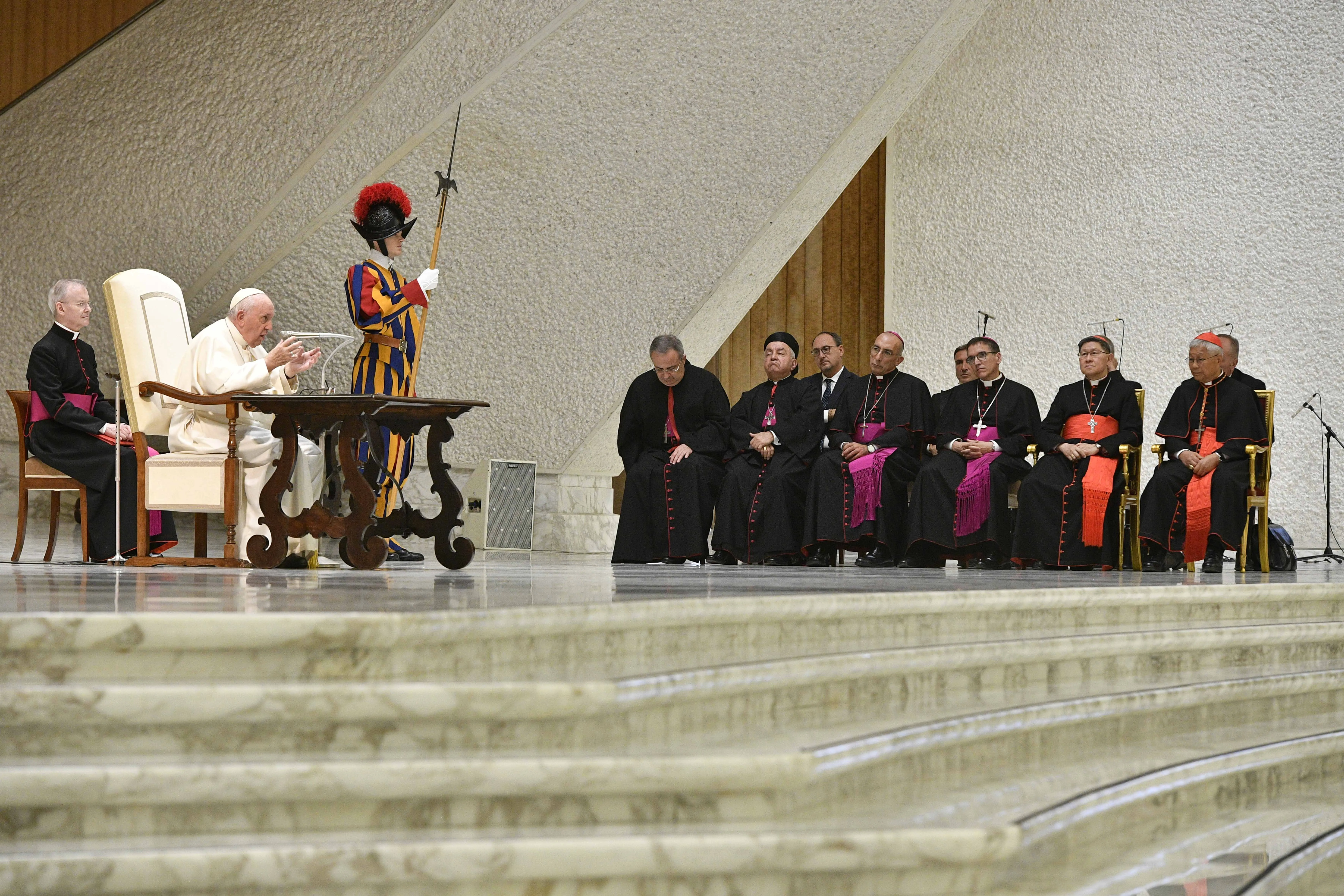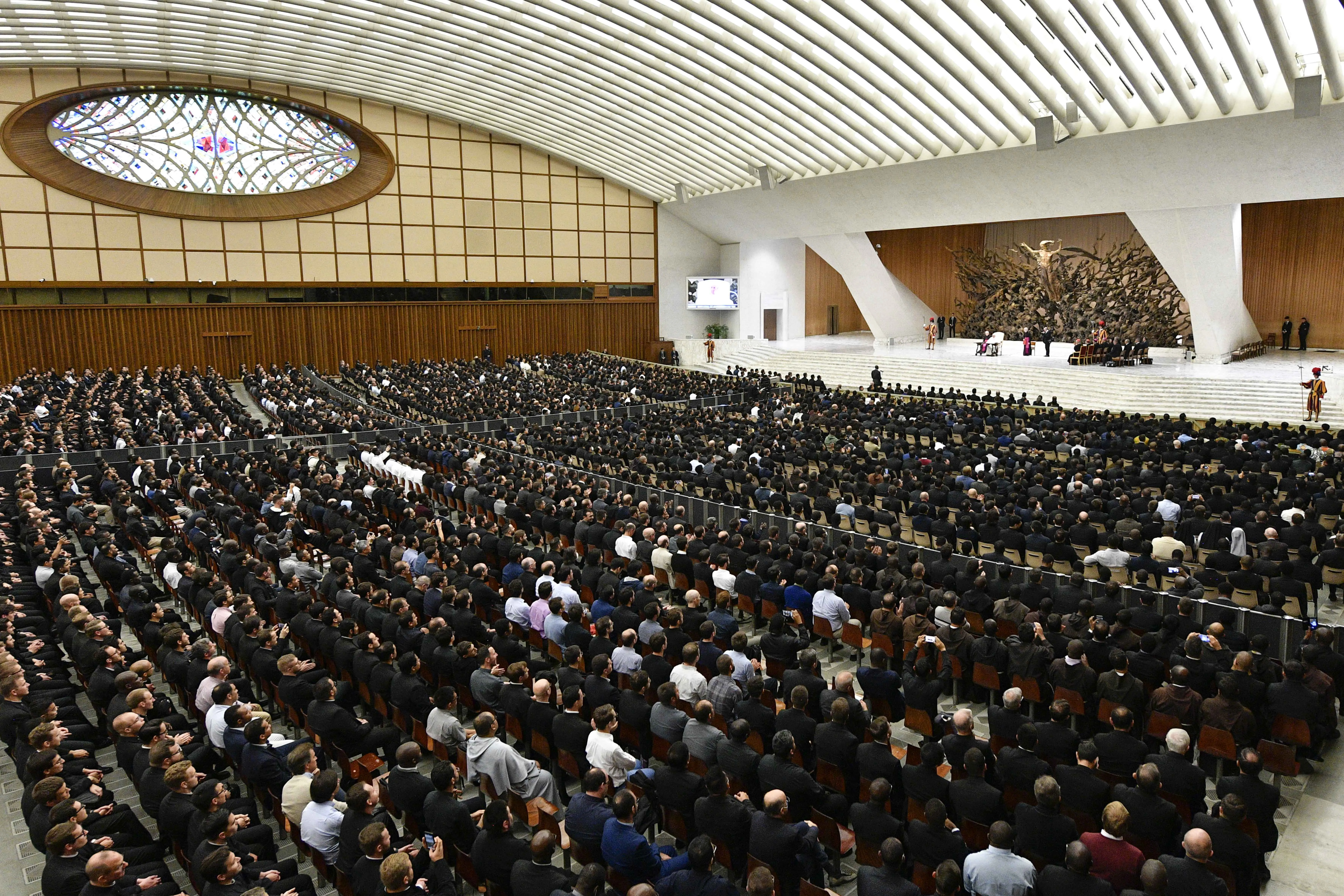
Rome Newsroom, Oct 26, 2022 / 09:11 am (CNA).
Pope Francis warned seminarians this week about how the vice of digital pornography “weakens the priestly heart.”
In a meeting with hundreds of seminarians studying in Rome, the pope underlined that it is important for seminarians and priests to be very careful about the “temptation of digital pornography” because “it weakens the soul.”
“Dear brothers, be careful of this. The pure heart, the heart that receives Jesus every day, cannot receive this pornographic information,” Pope Francis said on Oct. 24 in Paul VI Hall.

“And if from your cell phone you can delete this, delete it, so you won’t have temptation at hand. And if you can’t delete it, protect yourself properly so you don’t have access to this. I tell you, it weakens the soul.”
Pope Francis explained that he wanted to bring up the problem of pornography because “it is a vice that so many people have — so many lay men, so many lay women, and even priests and religious sisters.”
He added that he was not just talking about “criminal pornography, like child abuse,” but what some people might call “‘normal’ pornography.”
“The devil enters from there. It weakens the priestly heart,” the pope repeated.
Pope Francis brought up pornography as he responded to 10 questions from seminarians ranging from spiritual direction and priestly formation to the war in Ukraine.
The Catechism of the Catholic Church describes pornography as “a grave offense” that “immerses all who are involved in the illusion of a fantasy world,” injures the dignity of its participants, and “perverts the conjugal act, the intimate giving of spouses to each other.”

Many Catholic ministries have been founded to help people struggling with addiction to pornography, including Integrity Restored, Strive: 21-Day Porn Detox, Reclaim Sexual Health, Covenant Eyes, and the Victory App.
If you value the news and views Catholic World Report provides, please consider donating to support our efforts. Your contribution will help us continue to make CWR available to all readers worldwide for free, without a subscription. Thank you for your generosity!
Click here for more information on donating to CWR. Click here to sign up for our newsletter.





Man has made a home for contraception and settled down with it in the pride of life. Simultaneously, Man has worked up an earnest strife to have abortion as another protected area of his castle and dynasty; and also to have dominion and domination with it along with contraception. It seems like weird sort of kid’s play to be singling out priests to preach to them about lust while “making a mess” with abortion and contraception to appease Man. I apologize for saying this but we have to address the things PROPERLY in all their dimensions.
I know of no reason to take him seriously when he expresses a rational orthodox position with words scripted for him. I know of no reason to believe it is for any reason other than to bolster a more moderate image of himself for public consumption while he continues to pursue his agenda of Church wrecking.
No, my concern isn’t scripting. It is the very Pelagianism the Holy Father had been warning about, as now, after all, it seems, clergy are being led in it even from in seminary – passed out in public lectures broadcast in Catholic media – as remediation for lusts.
Come Down Lord My Son Is Ill (O! But stay, Lord!)
Sung by The Medical Mission Sisters
https://www.youtube.com/watch?v=bBDqkTWdeek
“Weakens the soul”? Yes, a very good and timely message, but an incomplete message weakened by impromptu-ism?
Porn: a sin “gravely contrary to chastity” (CCC 2396), meaning a mortal sin (what’s that?) if done with free will and consent. A sin against the victims, surely, and against the self and, oh yes, even against God (who?). A weakness calling for Penance and personal conversion.
So, a weakness, but too often categorically more, and possibly applying even to (unmentioned) bishops and cardinals, and especially to those in high synodal places now intent on overturning both the natural law and revelation (e.g., CCC 2351-52, 2357-58) regarding fully human sexual morality.
Prevention is better than cure. Conversion is an ongoing and a never ending opportunity. Evangelizing the seminarians, priests, nuns, novices, postulants, and aspirants is a mission second to none.